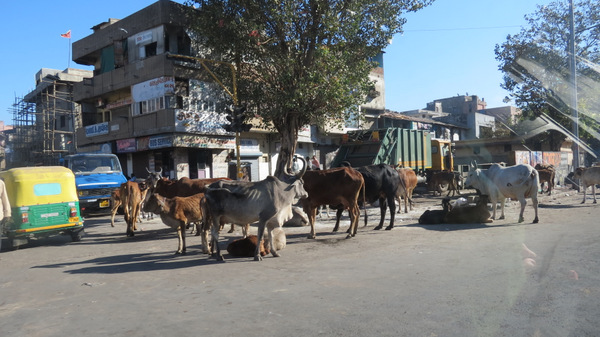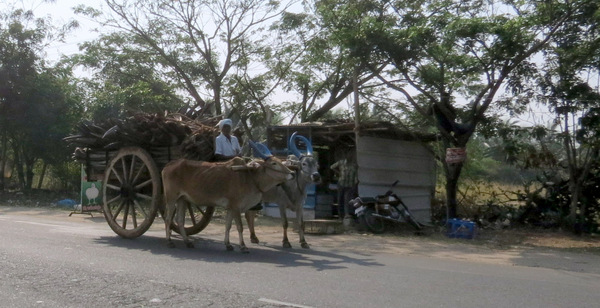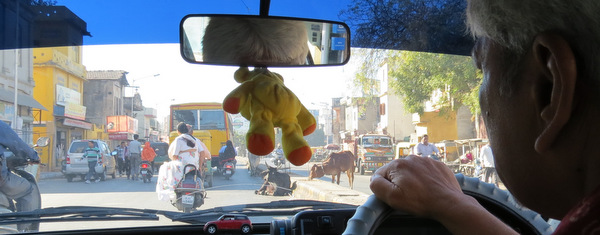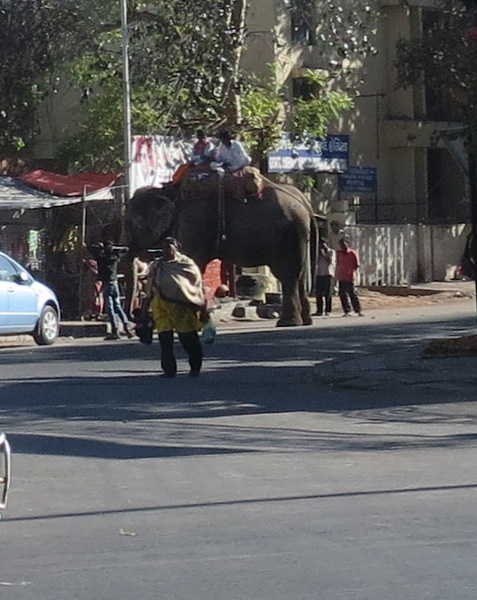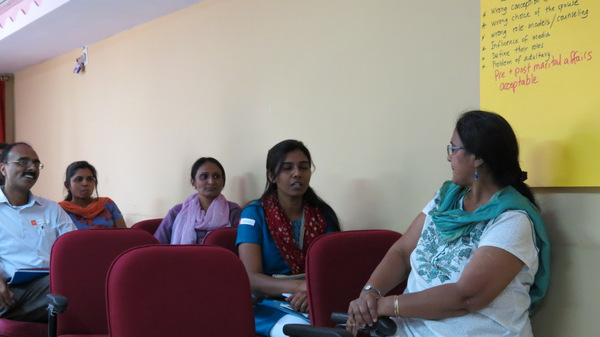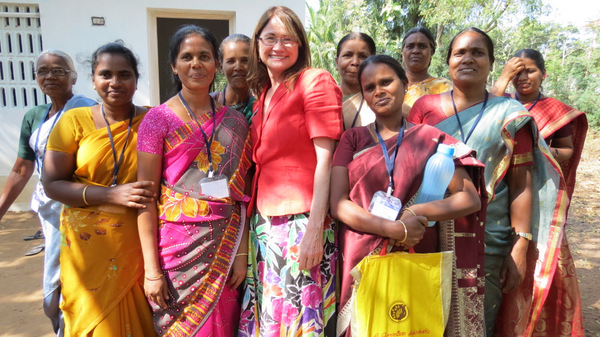|
From Untouchables to Archbishops Part 3 India India was an exciting experience for us. David Nutter and I were delighted with the warm welcome and enthusiastic response from both the low caste people in the rural area of Pollachi and from those of the sophisticated urban leaders we worked with in Ahmedabad. One thing we experienced firsthand was that what you have always heard about holy cows in India is true! A cow is considered to be a goddess, and Hindus believe that one receives a blessing for feeding them. Although I believe that people owned and milked the cows, they were allowed to wander freely everywhere and could not be chased away.
Interestingly, while we saw massive bulls pulling carts in Pollachi, I didn’t see cows in the road in town. Maybe in the countryside they had greener pastures to roam (or they just didn’t like all the motorcycles buzzing around).
However, in the very urban business city of Bangalore (where we stayed for two days between programs) and industrial Ahmedabad, cows — with giant horns — roamed the streets freely, browsing among the roadside garbage. Imagine a four lane thoroughfare with four cows lying down in the middle!
The first morning in Ahmedabad, we were stopped at a traffic light, and watched an elephant crossing the intersection. I wasn’t fast enough to get a picture before the light changed. Fortunately, the elephant was out again the next day and we got a photo. Roosters crowing and chickens out on their own are common sounds and sights in East Africa, but we saw no Indians chickens out unaccompanied – maybe because they are not goddesses and have no protected status, so people keep them safely cooped up. A few experiences since we returned home have slammed home to us the meaning of what we heard in India, and what the leaders we worked with there have to combat. First was an article in the LATimes about a hospital in a rural area of Ranthambore, India. The hospital once had a neonatal care unit, but discontinued the program because they found that people would pay only to save boy babies. One woman who gave birth to boy and girl twins there refused to nurse the girl “so the boy ‘wouldn’t get hungry’”. Then there is the movie, Not Today, about the treatment of Dalits (Untouchable or out caste people), that Donell Peck, Linda Crawford and I went to see last week. The story is about a slacker young man who goes to India with slacker friends and encounters a Dalit man and his seven year old daughter, who are living on the street. When the slacker fails to help them as he promised, the man sells his daughter, who was starving to death. The brokers who bought her promised him that she would work as a maid for wealthy people, eat, go to school, and have her own room. Of course the slacker reads up on human trafficking and realizes that the girl will most likely end up in a brothel. He and the father go searching for her. Looking through brothels for the daughter, they end up purchasing the freedom of several other girls, and are immediately faced with the problem of what to do with them. After all, their families sold them because they didn’t want them or couldn’t feed them. But soon the men discover that girls had gone back to the brothel on their own. When the young man (can’t call him a slacker anymore) asks why, the Dalit man tells them that all their lives, these girls’ fathers told that they were no good for anything – so why not go back to the only people who have any use for them? This sad phenomenon isn’t just a dramatization for the movies, and it is not just fathers who have no use for low caste girls. One beautiful and accomplished young woman who attended the Ahmedabad seminar said that her mother used to ask her, “Why should I feed you? You are just going to get married (i.e., you are just a girl).”
You may have read about a young woman in Delhi would got on a bus and who was so violently raped by the men inside, including with an iron rod, that she lost most of her intestines and later died in hospital. This assault and death caused a huge, and well warranted, public outcry. Our host and translator in Pollachi said that things like this happen all the time to Dalit women, but it rarely makes news because no one cares what happens to them. In the part I of the trip report, I told you this story, but it bears repeating here. During the first day of the seminar, participants everywhere work in small groups through the Genesis material. In Genesis 1, they learn that God created woman as well as man in God’s image. In Genesis 2, that woman was created as a help face-to-face to the man – not as just a housemaid and child bearer. In Genesis 3, participants discover that the man was with the woman during the temptation (Gen 3:6) and that only the serpent and the ground, not the people, were cursed in the Fall. By the end of that day, many of the women had tears in their eyes. They had been taught from the pulpit, all their lives, that they are the source of all evil, and cursed by God. Imagine, in a culture that practices witchcraft, how it feels to believe that you are cursed by God. As I finished the final debriefing on Genesis 3, I was surprised when the participants began to cheer, “Alleluia! Alleluia! Alleluia!” These were some very happy ladies.
Telling your daughters that they are not good for anything, and are lucky if they are even fed, is terribly cruel. Preaching from the pulpit that women are the source of all evil and cursed by God is equally cruel. But consider that the low-caste men are repeatedly told by their culture that they were not good for anything either.
Pollachi congregation
The movie, then, was only too true, and made me cry, but I also found it motivating. Having spent the last week and a half trying to sort out the financial records from the India and Africa trips – not my favorite activity — I begin to wonder just why I am doing this. Empower cannot do anything directly to combat human trafficking. We don’t come in with guns, or laws, to stop atrocities like slavery, rape, and genocide. But we offer the powerful scriptural message of God’s love for each of us, regardless of gender, caste, ethnicity, educational or social status. As we led the seminar in Pollachi, I thanked God for providing the story of the Good Samaritan, and particularly thanked God that we have it in the study guide. I thank God that God made us all in God’s own image, that God did not curse us but blessed us, and that he is sending us to the parts of the world that desperately need this message. I also thank God that he sent us with the format we use. Bishop V told us that had we preached that women are not cursed every Sunday for a year, the men would not have accepted it. But because in the seminars they study the Bible themselves, they are convicted, and begin to treat women accordingly. Teaching people about their essential worth, whether male or female, rich or poor, educated or illiterate, powerful or helpless, changes everything. Maybe this message won’t stop those who deal in human flesh, but as the parents hear God’s word, fewer of them will sell their daughters but will feed them instead. And fewer of those sold, understanding their true value, will return to bondage. |

